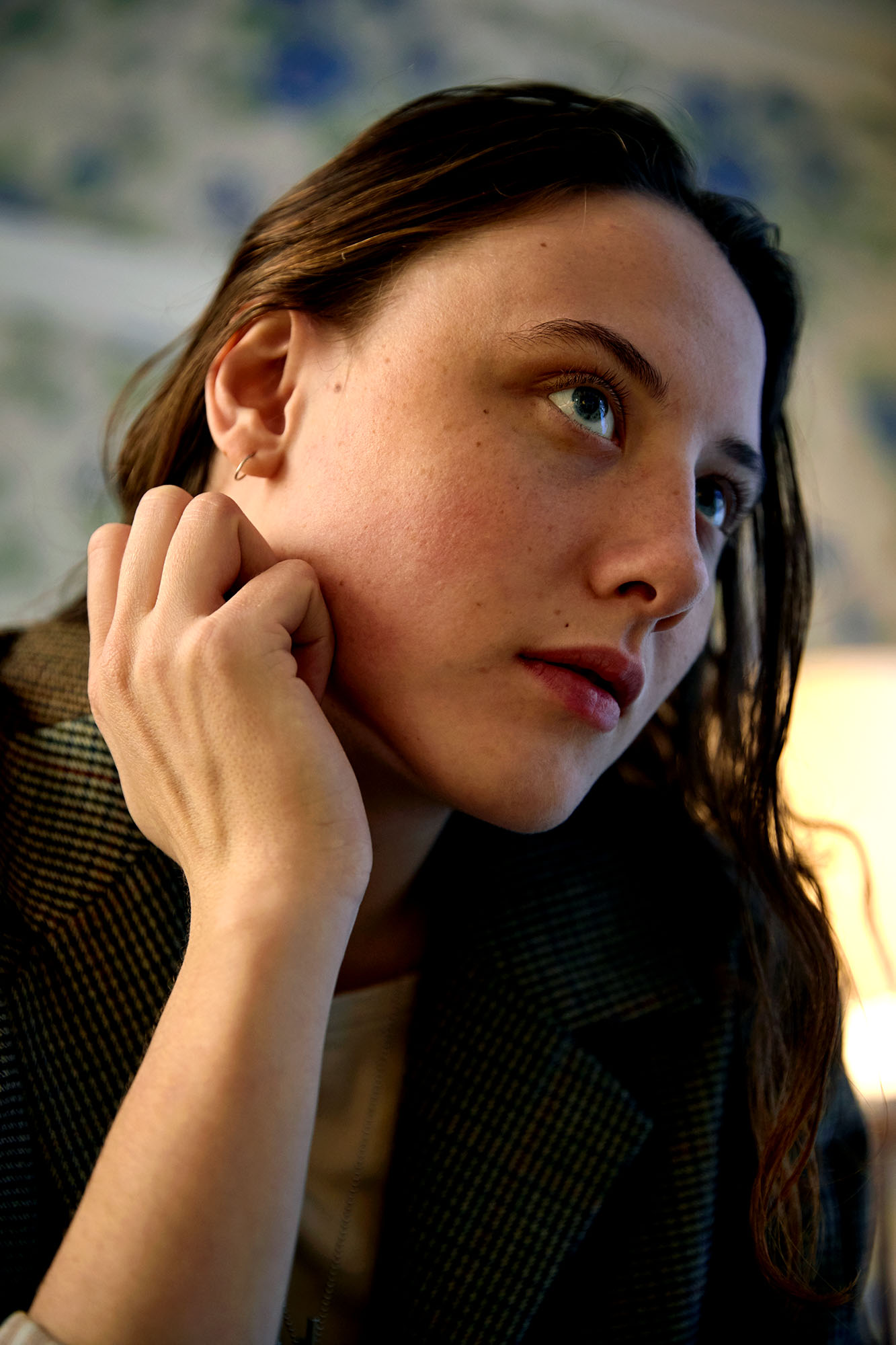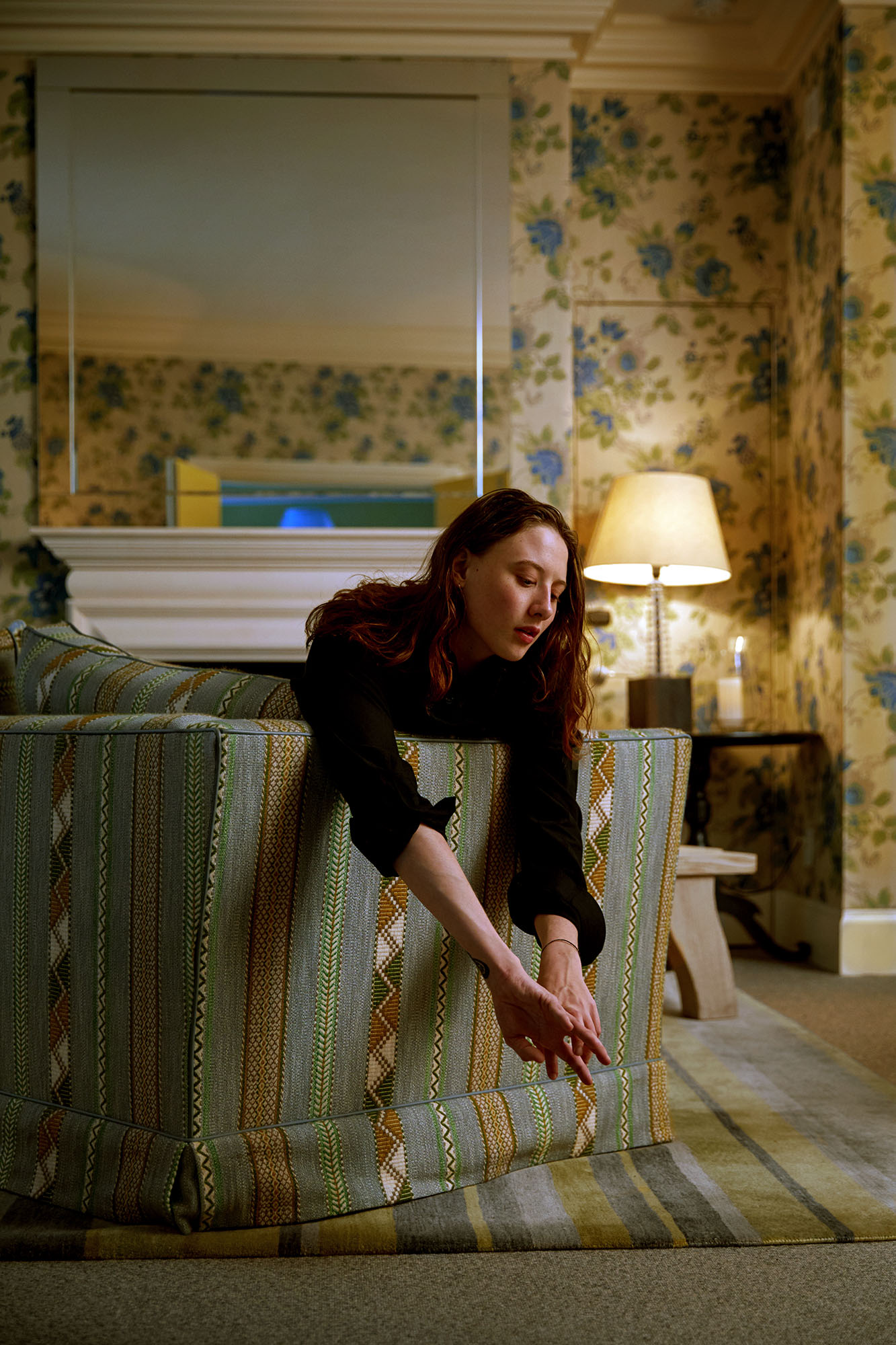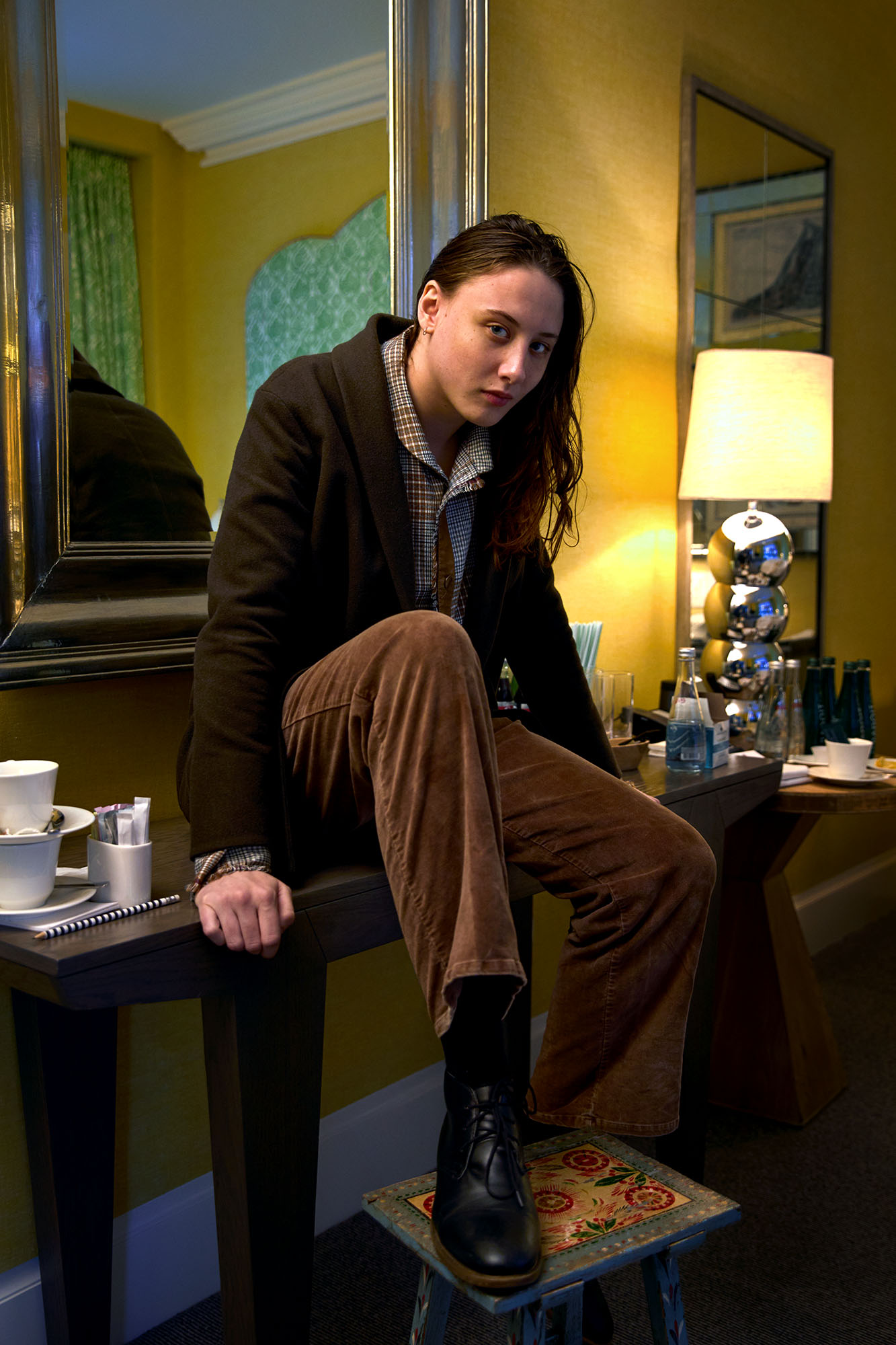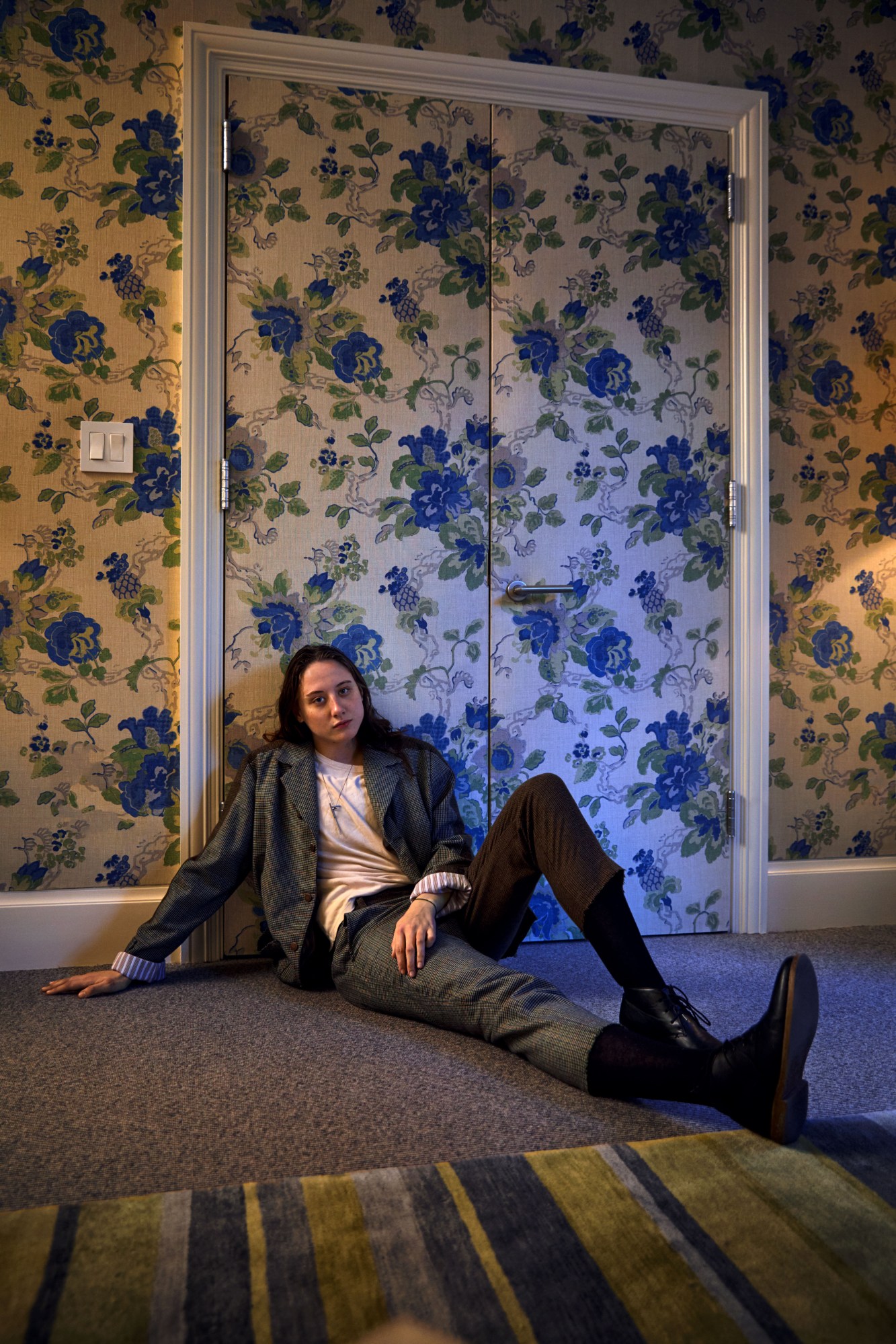Z is a trans male model and photographer currently living on the West Side. Recently, he’s walked for Willie Norris Workshop –– he makes those PROMOTE HOMOSEXUALITY shirts you love –– and has modeled for brands like CHNGE and Fried Rice NYC. While it’s common for models to be androgynous and there are many models who identify as non-binary or trans on the runway, there are not nearly enough. What’s unique about Z’s experience is that he models menswear, identifies as a trans man and has not undergone medical transition.
In my experience, social transition is misunderstood by a lot of folks and feels like it’s a luxury afforded to those who fit within a specific blueprint of what the “passing” body should look like –– muscular, tall, skinny. But for those who are afforded the luxury, it comes with a certain responsibility that Z is happy to take on. “Any time that I can open the door or leave the door open for someone else, like one of the dolls, one of the femmes, someone who identifies as fat, someone who’s disabled or someone who’s brown or black, that to me is so important,” he says.
As for Z’s photography, it’s unpolished, kind of like him. It feels like what it is, photographs of him and his friends living their normal lives, something that feels particularly rare in this queer mainstream moment we’ve had and continue to have. Before I was asked to write this piece, I already had plans to meet up with Z to talk about trans photography and what the landscape looks like right now. Instead, due to COVID-19, we met for the first time over Zoom. What follows is a cathartic conversation, spanning the somewhat confusing landscape of queer community, representation and what the future holds for both.
Interview has been edited for length.

So, how have you spent your time in quarantine? What are you thinking about?
You know… how do we still play during this time? How do we still stay attentive to each other and ourselves? How do we take space when we need it and create community when we don’t need space? I’m playing with this thing with my roommates, the people that I’m quarantined with, I’ll be like, “OK, when you’re feeling something, say something. When you’re freaking out, say it out loud.” And that’s been helping us all a lot because, we’ll just be like, “Hey, guys, I’m spiraling, you know?” And sometimes it’s like, “I’m spiraling because I miss working a brunch shift,” or sometimes it’s like, “I’m spiraling because I don’t know if I’m ever going to see my mom again.” And either way, we talk about it. We address it and we comfort each other. We’ve all cried and we’ve all danced and we’ve all just like, really come together. Sometimes the only thing I can do is make some frozen food from Trader Joe’s for everyone, but that’s enough, you know? And sometimes, like one day, we put on our gloves and masks and went out and got everything to make pina coladas and we got out the blender… it was a whole fucking thing, but we’ve just been really trying to keep the morale up.
Obviously, we’re seeing a lot of instances of mutual aid and in general, people are taking the time to see and help one another. Is there anything in particular that has stood out to you?
Oh, yeah. I mean, Rent Strike, we participated in that. That was a hard conversation with our landlord, but we did that and we gathered resources for others that we know who wanted to participate with us. So many people don’t have it and have no ability to send it, and to stand with those people is extremely important to me. That was kind of the first thing that I felt like I saw as a whole community. I also saw, you know, older queer people on Instagram, just like, “DM me and I’ll give you $50, like, whoever needs it.” That was iconic. That’s who I want to be in 25 years, you know? [laughs] People being like, “Hey, like I have privilege. Let me hand it out.” That was incredible. My friend started a wholesale account because they’re a chef. They started this little virtual grocery store where they’re using their wholesale account to get flour, eggs and different things, and they’re now selling it at a much, much lower price to the community.
It’s nice to know that despite all of the bad happening right now, people are really showing up for one another. Specifically within the queer community, I’ve noticed so much resourcefulness that feels like it’s always been there. We’ve set a precedent.
You can look at it like we’ve had our whole lives to train for this, you know? And I feel like I thrive in a place where things are unsure because I’ve always kind of felt like things were unsure. As a young trans person, just feeling like I didn’t always know what was going to come next. I felt like sometimes life would throw me for a loop or just the various painful things that we as a community experience that I’ve carried with me very closely. I now feel like the world has ended [for us] before. And for that to even be validated and for me to be able to step up and do something now is in a way, very healing. It’s really hard to find any silver lining in something so terrible as a global pandemic, but one thing that the queer community is really good at is stepping up in a time when things feel dark and saying, “No, we still have the light. We know how to dance in the dark. We know how to support each other. We know how to go into those dark places with each other and then walk out unscathed,” because that’s already what we do.

We’re obviously experiencing a shift in the way that queer people show up in the world on a mainstream level. What have you noticed?
I think that we are taking huge strides together as a community right now. I mean, last year’s pride really let me down. I didn’t like the rainbow capitalism. I didn’t like everything I was seeing. That hurt me a lot because that was the first pride that I participated in being out as trans and I walked in the parade, which was really radical and really wonderful, but at the same time, I felt like I almost wished that I didn’t. I just really didn’t feel like the spirit was there. Since then and especially since the beginning of 2020, I’ve watched a lot of people personally take big steps to move the community forward in a meaningful way, and I’ve seen that received and acknowledged in a meaningful way. I’m just so excited because I feel like maybe this year’s pride might be a little bit more… I mean, we don’t know if it’s going to happen, of course, but even if we’re all just making content in quarantine, I do feel like there’s more of a poignant, global-minded feeling right now that’s a lot more respectful and nuanced than it’s ever been.
I do think little by little we’re peeling back the layers. Okay, yes, trans exists, but we don’t need to keep doing photoshoots where everyone’s wearing a tri-colored binder because the trans experience is incredibly nuanced. Those colors and the flag have become so entrenched in mainstream cis marketing. What happens when we are able to control the narrative?
Yeah, I definitely do see a lot of pandering specifically to trans people and I’m like, “No, no. First of all, we don’t have that kind of money.” But I also don’t need to wear platform shoes that are blue, pink and white on a shoot. That to me is not a political statement. To me, it’s about the way that I exist and the way that me and my trans friends have been able to have completely self-sustaining friendships, partnerships, relationships without any cis people there to control the way that those relationships move. Without any person there to tell us what we’re doing wrong or point out the reason that things are the way they are or remind us of tradition. We are a self-sustaining entity. Our relationships and the deep aspect of the love that we have for one another is the most powerful thing that I’ve ever seen in my life. Just being able to exist without somebody there to police and control you, and remind you why the cis world is the way that it is. I think that is the way through. T for T is so important because we have thought about gender more than anyone else has. And we have more to say about it than anyone should. We have so many ideas and so many beautiful moments that we could share with the world and we could actually move forward in a way where we’re not just basing everything off of fear and money, you know? But I also think the way that we have fun together is so much more important than either of those factors, and the way that we care for each other and remind each other what love is and work through hard conversations. In a way, we’ve been traumatized by a world that’s treating us really poorly, profiting off all of us, taking from us and then telling us that we weren’t even the ones doing it right all along. It’s cognitive dissonance and it’s incredibly stressful. It’s painful and it’s invalidating. But the way that we can work around that I think is just to move forward and have those hard conversations with each other and say, like, “Yeah, we’ve all been hurt by this world and we’re all sort of waiting for the other shoe to drop, and for us to be alone again or to feel alone again.” But we don’t have to choose that. We can choose to continue to support each other and love each other and show up for each other and forgive each other when we make mistakes, you know, because we’re gonna make mistakes.

Right.
I do feel like transness and the way that it’s portrayed in the media is very shrouded and there’s always that picture, that shot of someone like in a dark room looking in the mirror, tearing at their body. And I’m like, “First of all, that’s not a trans thing. Everyone does that.” I think everyone has had that moment where you’re crying in the mirror, so don’t tell me that it’s just us, because I know how we all feel. We’re all taught to hate our bodies. So, that’s not a trans issue, that’s just a body image issue. But I don’t know, why do I need to prove that I’ve gone through a certain amount of physical pain in order to be awarded the title of Man? Because I’ve suffered from my identity, who hasn’t? At the same time, I don’t feel like I need to say, “Here are my scars. And here’s, where I like the curves.” That to me is not what being trans is about. That’s not what being a man is about. I don’t feel like I should have to show scars to CIS people just for them to call me what I want to be called. I believe that if there’s ever a day that I choose to change my body, it’s going to be for me and only for me. But until I can say that it would only be for me, I’m choosing to not take those steps. Right now, I don’t think I could say that. I think it would be more of like, this is what people want and expect. So, until that point, I’m pretty comfortable in exactly this body. And again, I very much insist that people look at my body the way that it is, and refer to it the way that I would like for it to be referred to — as it should be.
With all of that in mind, how do you view yourself within modeling?
What I try to do is just stay in my lane and stretch as far as I possibly can, you know, that way maybe I’ll stretch so far that somebody else can get in there too. Or like, maybe I’ll stretch so far that someone across the board from me will see it and stretch really far where they are too. I think in that way, we can support each other and we can pave the way for each other. Any time that I can open the door or leave the door open for someone else, like one of the dolls, one of the femmes, someone who identifies as fat, someone who’s disabled or someone who’s brown or black, that to me is so important. And I really think a lot about taking people with me because I feel like certain people took me with them… There’s a lot more room in the conversation for somebody else to speak to things that I couldn’t or even fill me in on a blind spot that I may have in the way that I feel. I’m filling in others on a blind spot that they have. Everybody in this world has at least one thing or one experience or one anecdote that’s unique to the other people in the room with them, at any given time. I try to at least like, learn from everyone. But like I said, the thing that brings me the most joy is when somebody reaches out to me and says, like, “I feel represented by you because I don’t really feel like I ever saw anyone in the media who I felt represented by.” I have always felt a little bit alone in this. And I think that that’s kind of an overarching theme of being queer because when you’re looking in front of you, and you don’t really see anyone in front of you, you can feel really lonely. But then if you kind of look behind you, and you see all these Instagram followers who are like, little AFAB kids with long hair who are like, I’m a guy… That’s why I want to do this. Because we all deserve a fair shot to feel like we could do this and to feel like there’s somebody else doing what we want to do and what we think is important.
